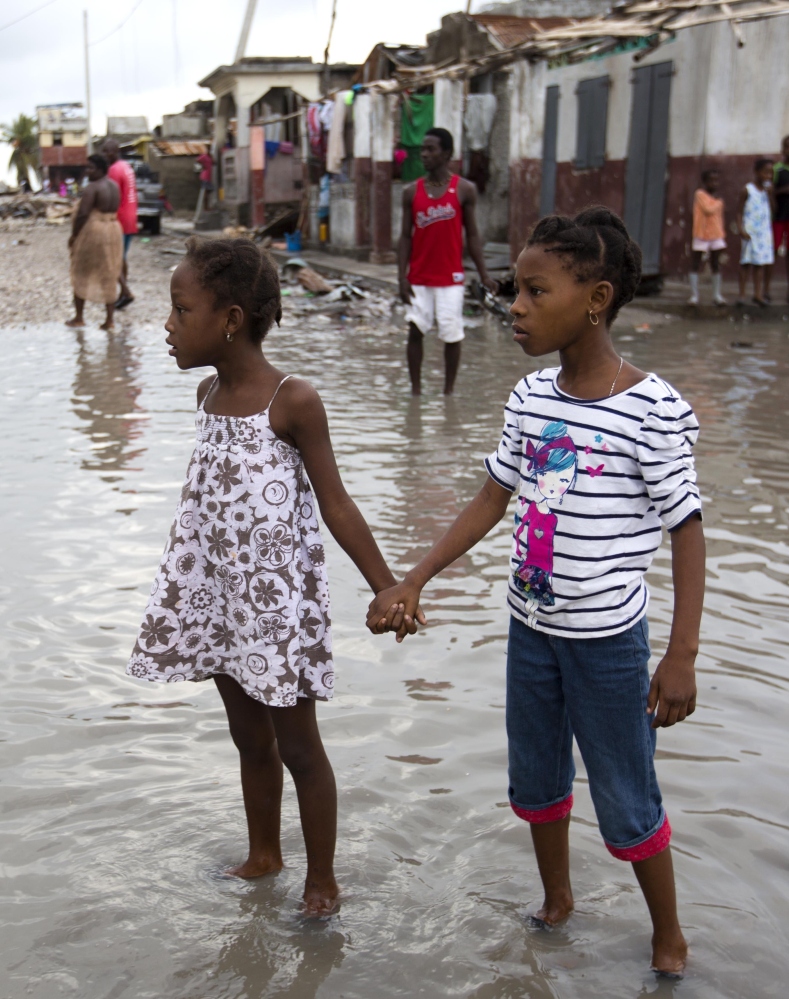Hurricane Matthew reminds us once again that disasters happen, and that they are decidedly not equal-opportunity events.
Nature’s fury can overwhelm even the best preparations, as we have seen happen on the East Coast of the United States, but the level and scope of suffering are extremely disproportionate for people who live in abject poverty and are not protected by strong governance and health systems. We see this as each day the death tally rises and the level of devastation becomes better understood in southwest Haiti.
Konbit Sante, a local Maine-based organization, has been working in northern Haiti for 15 years, and in that time has repeatedly witnessed both the disasters and the local and international responses. We have also witnessed and benefited from the generous impulses of people, many of whom are our neighbors here in Maine, who want to help when they see the images that we are seeing today from southwest Haiti.
We are grateful that the area and people with whom we work were only minimally affected by this latest hurricane, but we have received many concerned inquiries about how to be most helpful in these circumstances.
Some thoughts on what is helpful and what is not:
• While people have a great desire to personally help those in need, in most cases a period of major crisis is the worst time to make a first visit to a different country and culture. It is much more effective to identify people and legitimate organizations who already have long-term relationships with the communities in the affected areas and support their response.
In some cases, volunteers with specific expertise are needed, as the relief organizations will generally make known. But more often, the funds used to support the travel of people who were not recruited could be put to better use if they were donated directly to local responders.
• There is often an impulse to collect and send materials that we all imagine would be useful under the circumstances. There are instances where critical materials are not available in-country where this becomes necessary, but it is better to support organizations’ procurement of the specific materials they need for relief efforts.
After the earthquake in Haiti, the airport tarmacs were famously overloaded with well-intentioned but often not useful materials, hindering the timely passage of vital supplies. Those organizations working on the ground can provide guidance about how best to support those material needs.
• The scope of a disaster is very often related to the realities and contexts in which people live. During the height of the cholera epidemic in Haiti, we learned that it would be impossible to build enough cholera treatment centers if nothing is done to reduce people’s vulnerability to its spread, and so we invested in community prevention efforts.
And so it is with all disasters: While it is important to respond after the fact with support for relief, it is also important to invest in work that strengthens health and other systems that decrease people’s vulnerability to the next disaster.
The response to this latest tragedy in Haiti is taking time to put together. As a small and flexible organization, Konbit Sante is collaborating with others in northern Haiti to bring needed material and financial resources to a small hospital, St. Boniface Hospital, in the affected area in the south, so that St. Boniface can scale up its capacity to treat and prevent cholera, as the anticipated rise in cases in the area is already occurring.
We have the legal status and experience to bring critical humanitarian materials into the country, such as the 640,000 water disinfection tablets that we just purchased from Medentech in Ireland. As approved purchasers of World Health Organization’s medicines and supplies in Haiti, we are buying the recommended IV fluids and oral rehydration salts for treating cholera patients at risk of death from dehydration.
We have the relationships and collaborations to handle the logistics of getting these materials where they can have the greatest impact, quickly. By redirecting funds that have been entrusted to us by the ongoing generosity of our donors, volunteers and supporters, we have been able to respond quickly during this emergency relief phase without having to conduct a fundraising campaign.
Going forward, even as this disaster inevitably recedes from the headlines, we will continue to work to strengthen the capacity of the health system in our area to meet the great everyday health needs of their community, to reduce their vulnerability to disasters and to more effectively respond.
Copy the Story Link
Send questions/comments to the editors.



Success. Please wait for the page to reload. If the page does not reload within 5 seconds, please refresh the page.
Enter your email and password to access comments.
Hi, to comment on stories you must . This profile is in addition to your subscription and website login.
Already have a commenting profile? .
Invalid username/password.
Please check your email to confirm and complete your registration.
Only subscribers are eligible to post comments. Please subscribe or login first for digital access. Here’s why.
Use the form below to reset your password. When you've submitted your account email, we will send an email with a reset code.